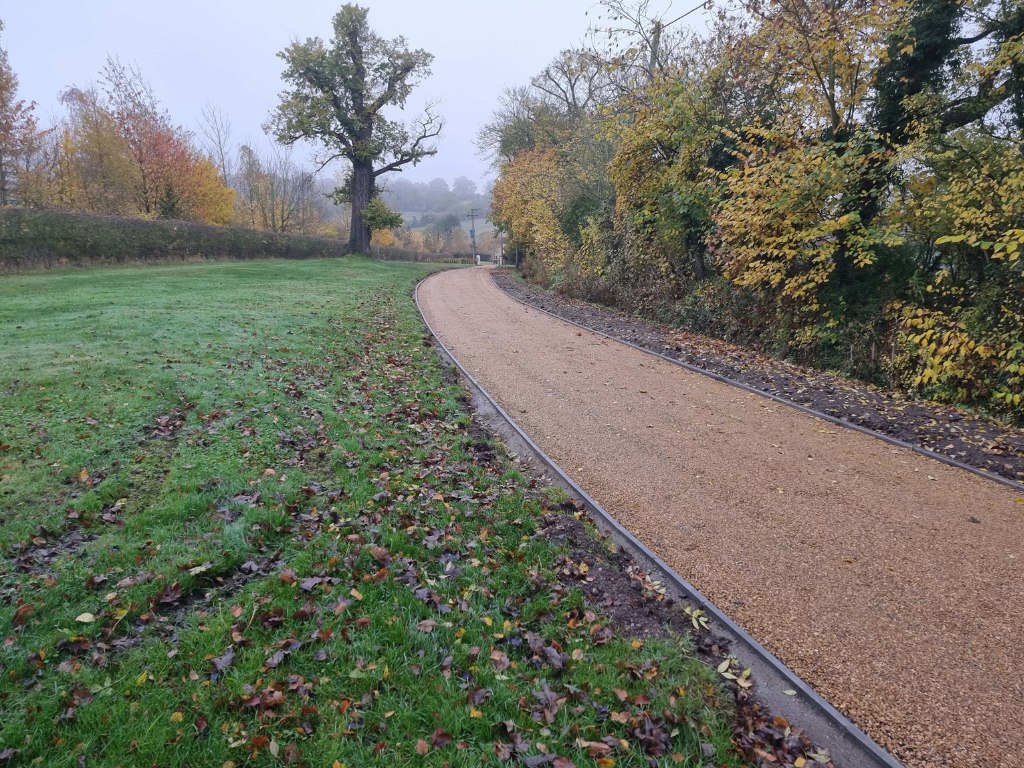Key Features of a Quality Tarmac Installation
A professionally installed tarmac driveway can dramatically improve the appearance, accessibility, and value of your property. But not all tarmac installations are created equal. The long-term success of any tarmac surface depends on a number of critical factors, from preparation and materials to drainage and finishing. At Folkestone Driveways & Surfacing, we specialise in delivering high-quality tarmac solutions throughout Folkestone, Kent, with a focus on precision, durability, and customer satisfaction.
If you’re considering a new tarmac driveway or path, understanding what sets a quality installation apart will help you make an informed decision.
Why Tarmac?
Tarmac (or tarmacadam) remains one of the most popular surfacing choices for domestic and commercial driveways alike. It offers a clean, smooth finish that’s both cost-effective and resilient to heavy usage and weather conditions. However, the durability and finish depend heavily on the quality of the installation.
Key Elements of a Proper Tarmac Installation
1. Thorough Site Preparation
A high-quality tarmac driveway begins with proper groundwork. This phase lays the foundation for a stable and long-lasting surface.
Essential groundwork includes:
- Excavation to the correct depth
- Removal of soft spots or poor-quality subsoil
- Installation of a geotextile membrane (if required) to prevent weed growth and separation of layers
The strength of the final surface depends on the care taken during this phase.
2. Proper Sub-Base Installation
The sub-base layer is crucial to the strength and performance of the tarmac above it. A compacted base, often made from Type 1 MOT hardcore, provides the necessary stability and support.
Key sub-base features:
- Even and well-compacted layer for load distribution
- Correct thickness (typically 100–150mm) depending on the use of the driveway
- Graded and levelled to encourage effective drainage
3. High-Quality Tarmac Material
Not all tarmac mixes are the same. A professional installer will select the correct type based on the usage and expected load.
- Base course (binder layer) for strength and structure
- Wearing course (top layer) for a smooth, weather-resistant finish
For driveways, a 6mm or 10mm wearing course is usually appropriate, while heavier-use areas may require a thicker, coarser grade.
4. Skilled Compaction and Laying Technique
Even the best tarmac will fail if it’s not laid and compacted correctly. Timing, temperature, and technique are all vital.
A quality installation includes:
- Laying tarmac at the correct temperature to allow proper bonding
- Even distribution and jointing to avoid weak spots
- Mechanical compaction using a roller for a dense, even surface
5. Effective Drainage Design
Standing water is a common cause of surface deterioration. Proper planning prevents water from pooling or damaging the structure.
Good drainage considerations include:
- Subtle gradients to direct water away from buildings
- Aco channels or gully drains to collect run-off where needed
- Permeable edging or kerbs to assist water flow
In Folkestone, Kent, where coastal rainfall can be frequent, drainage must always be a priority.
6. Clean, Professional Finishing
Attention to detail at the finishing stage is what separates a basic job from a professional one. This includes:
- Neat edging using block paving, concrete kerbs, or gravel boards
- Well-defined borders between tarmac and adjacent surfaces
- Smooth, uniform appearance without visible seams or marks
At Folkestone Driveways & Surfacing, we ensure that the final result is not only structurally sound but also visually appealing.
Additional Considerations for a Long-Lasting Surface
- Avoid heavy traffic during the curing period (usually 3–5 days)
- Regular maintenance, such as cleaning and resealing, can extend the surface’s lifespan
- Prompt repairs of cracks or potholes help prevent further damage
A well-installed tarmac surface can last 15–20 years or more with the right care.
Why Choose Folkestone Driveways & Surfacing?
As local specialists in tarmac installation, we offer:
- In-depth site assessments tailored to each property in Folkestone, Kent
- Skilled and experienced installation teams
- Use of premium materials and machinery
- Long-lasting results backed by local knowledge and expertise
We work with homeowners, landlords, and commercial property managers to deliver high-quality driveways and surfacing solutions that stand the test of time.
Conclusion
A successful tarmac installation is about more than just laying asphalt—it requires proper preparation, quality materials, skilled workmanship, and thoughtful design. At Folkestone Driveways & Surfacing, we provide professional tarmac solutions throughout Folkestone, Kent, ensuring each surface is built for performance, appearance, and longevity.
If you’re planning a new tarmac driveway or upgrading an existing surface, contact Folkestone Driveways & Surfacing today to book a consultation and see how we can help bring your project to life.
Call us on: 01303 763 895
Click here to find out more about Folkestone Driveways & Surfacing
Click here to complete our contact form and see how we can help with your driveway needs.

